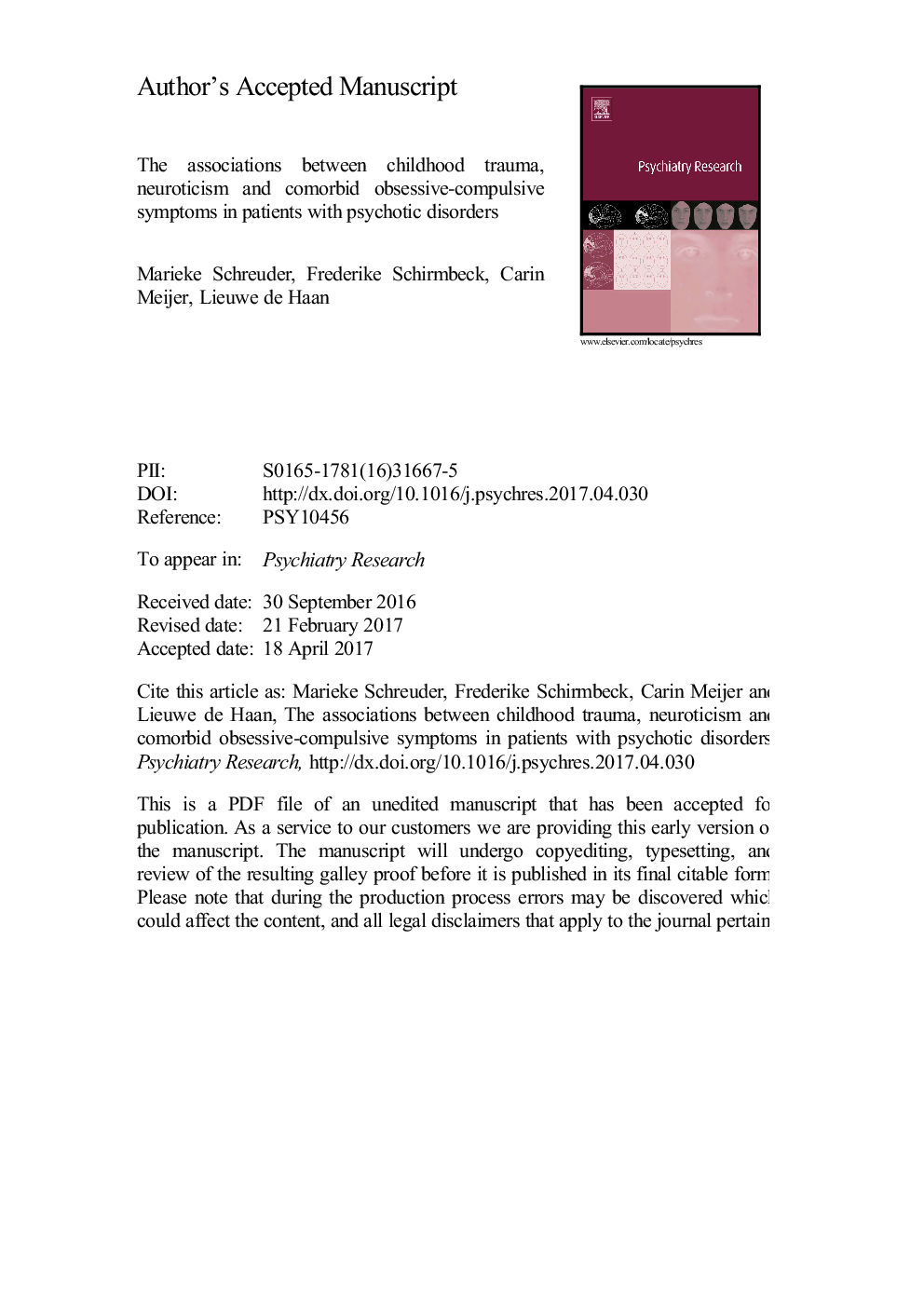ترجمه فارسی عنوان مقاله
ارتباط بین آسیب های دوران کودکی، روان رنجوری و علائم وسواسی اجباری همراه با اختلالات روانی
عنوان انگلیسی
The associations between childhood trauma, neuroticism and comorbid obsessive-compulsive symptoms in patients with psychotic disorders
| کد مقاله | سال انتشار | تعداد صفحات مقاله انگلیسی |
|---|---|---|
| 128038 | 2017 | 25 صفحه PDF |
منبع

Publisher : Elsevier - Science Direct (الزویر - ساینس دایرکت)
Journal : Psychiatry Research, Volume 254, August 2017, Pages 48-53
ترجمه کلمات کلیدی
همبودی، وجود همزمان دو بیماری، روانپریشی وسواسی، اجباری، کودک آزاری، دماسنج، شخصیت،
کلمات کلیدی انگلیسی
Comorbidity; Psychosis; Obsessive; Compulsive; Child abuse; Temperament; Personality;

